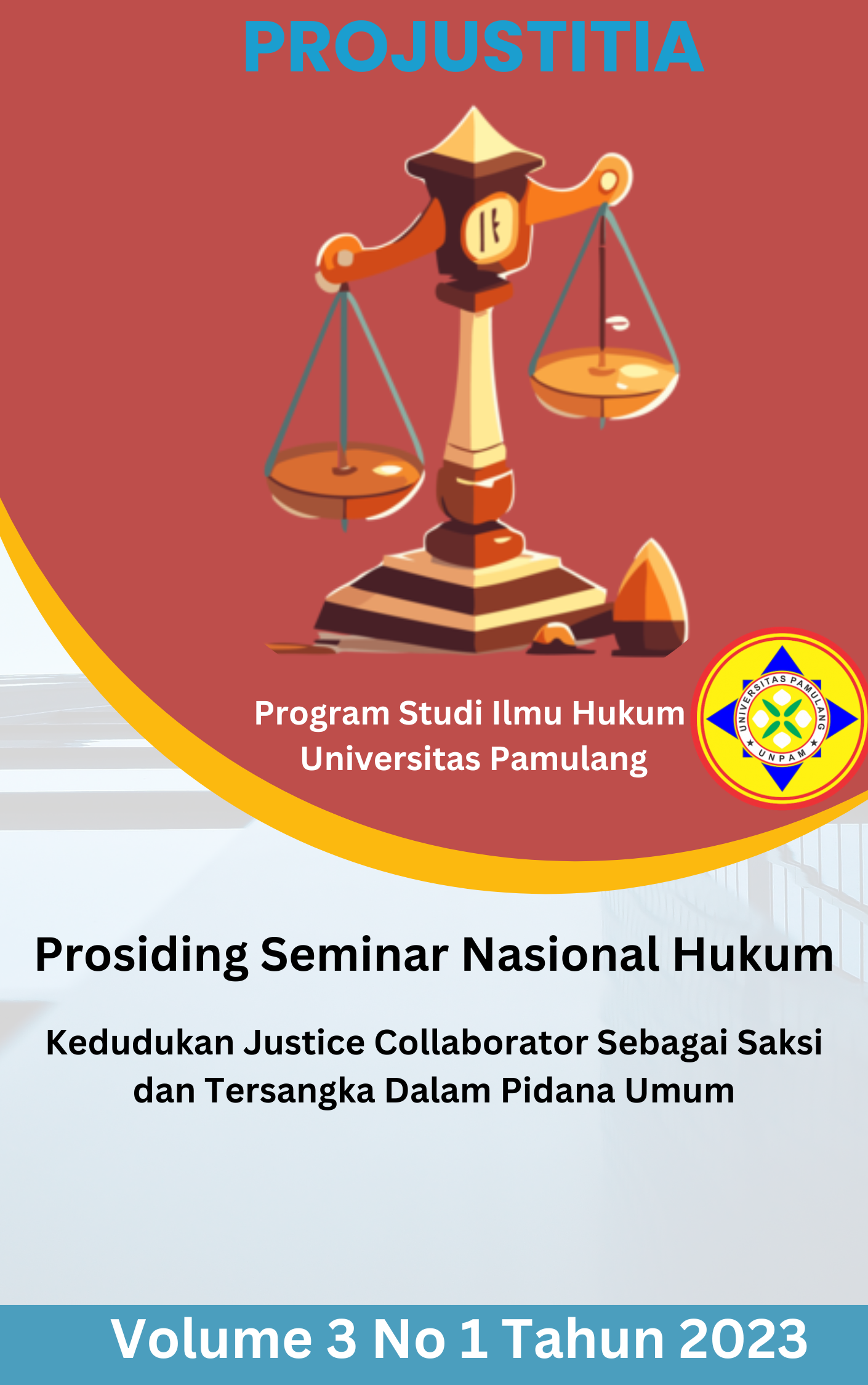Analisis Yuridis Terhadap Perkawinan Campuran Menurut Undang - Undang Nomor 1 Tahun 1974 Tentang Perkawinan
Abstract
Living together is one of the means to meet the needs of human life, both physical and spiritual needs. Living together between a man and a woman as husband and wife and fulfilling the legal provisions, this is what is commonly referred to as a marriage. Marriage is a very noble way to organize household life and offspring and get to know each other, so that it will pave the way for helping each other. Mixed marriage has penetrated all corners of the country and social classes. Based on the description of the background of the problems above, the author is then interested in making the theme of writing this law "Juridical Analysis of Mixed Marriages Foreign Male Citizens (WNA) Marry Indonesian Citizen Women (WNI) According to Law Number 1 of 1974". The impact or legal consequence of the mixed marriage is regarding the nationality concerned (wife/WNI woman) and also the citizenship status of the child. From a legal standpoint, a person's citizenship status determines his rights and authorities as a citizen. This study aims to find out what are the legal consequences of mixed marriages for mixed marriage actors, especially Indonesian Citizens (WNI) and what are the Child Custody Rights Due to Divorce in Mixed Marriages. The research method used in this study is a normative legal research methodin which the data sources used are obtained based on primary legal materials, namely Law Number 1 of 1974 and secondary legal materials such as books, journals and so on. The outputs targeted in this research are mandatory outputs in the form of accredited national journals.
Keywords: Marriage, Citizenship, Nationality


